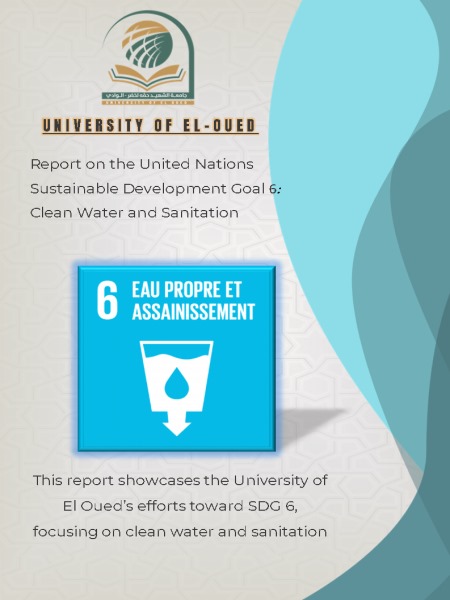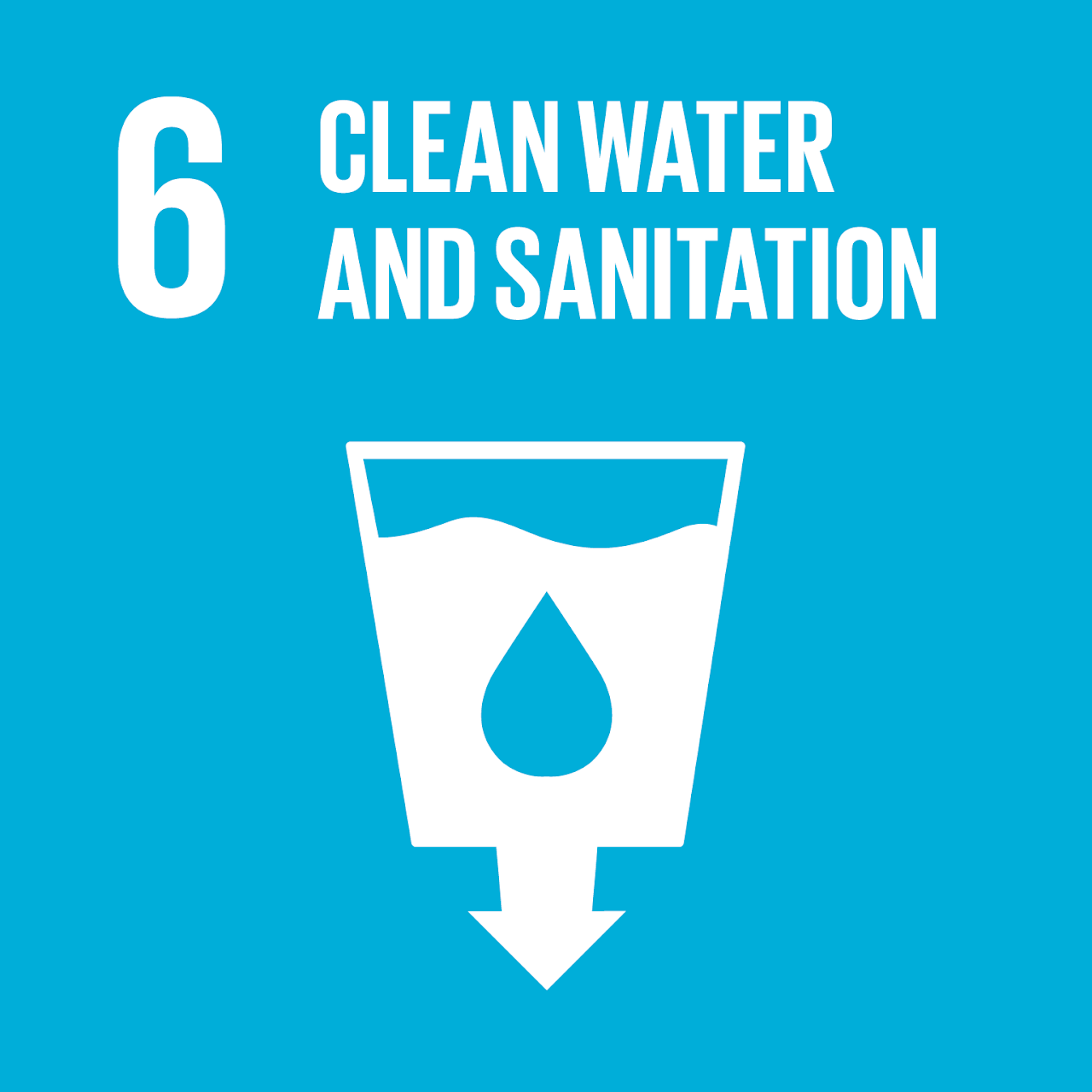
Introduction
The University of El Oued is actively dedicated to advancing SDG 6, focusing on clean water and sanitation. Through implementing sustainable practices, innovative infrastructure, and educational initiatives, the university addresses key targets to foster water management, reduce pollution, and promote water conservation both on and off campus. This report provides a detailed overview of the university’s efforts, structured around major SDG 6 targets.
- Wastewater Treatment
The University of El Oued emphasizes sustainable wastewater management, providing students with hands-on exposure through field trips to local treatment facilities, such as the Kouinine and Touggourt stations. These visits allow students from the Hydraulics Department to gain practical insights into each stage of wastewater treatment, from initial screening to advanced filtration and disinfection. This experience reinforces their understanding of water chemistry and microbiology and underlines the significance of wastewater treatment for regional water sustainability. Furthermore, the Hydraulics Department offers specialized training in water resource management and provides expert consultation to local water institutions, supporting regional efforts to manage water responsibly and sustainably.
- Preventing Water System Pollution
In collaboration with local authorities, the university has established protocols for preventing water pollution across campus. These include strict measures for handling laboratory waste and maintenance activities that might affect water quality. The campus provides training sessions on emergency response to potential spills, ensuring staff and students are well-prepared to safeguard local water systems from accidental contamination. The Hydraulics Department contributes expert advice to local water institutions on pollution prevention strategies, supporting sustainable water practices in the broader community.
- Free Drinking Water Provision
To promote health and sustainability, the university provides free drinking water for students, staff, and visitors through water fountains across campus facilities. This initiative not only supports hydration but also reduces the use of disposable plastic bottles, aligning with sustainable water consumption practices.
- Plantation soucieuse de l'eau
The landscaping on campus incorporates native and drought-tolerant plants, minimizing water consumption while supporting local biodiversity. By utilizing plants well-suited to El Oued’s arid climate, the university reduces the need for irrigation, making campus green spaces both sustainable and resilient to water scarcity.
continuous improvement in sustainable water management across the university.
- Water Management Educational Opportunities
The Hydraulics Department at the University of El Oued plays a key role in advancing water management education. The department offers both undergraduate and postgraduate programs focused on water resources, hydrology, and sustainable water management practices. Students receive hands-on training through collaborations with local water authorities and field visits to regional dams, treatment facilities, and well-drilling sites. In addition to training future water management professionals, the Hydraulics Department provides expert advice to local water institutions, supporting community resilience against water scarcity and enhancing the impact of sustainable practices across the region.
- Off-Campus Water Conservation Support
The university extends its water conservation initiatives beyond campus by working closely with local agricultural institutions to support water-saving practices in farming. This includes providing guidance on efficient irrigation techniques, which benefits regional agriculture and aligns with broader water conservation goals.
- Sustainable Water Extraction on Campus
The University of El Oued employs sustainable water extraction practices on its grounds, particularly for groundwater resources. Students gain hands-on experience in groundwater management, including observing water well drilling processes and learning about sustainable extraction techniques that prevent overuse.
- Cooperation on Water Security
The university actively collaborates with regional and national entities on water security projects, contributing research expertise to regional initiatives that address water scarcity and infrastructure resilience. The university collaborated with Algérienne des Eaux. This cooperation underscores the university’s role in advancing SDG 6 and helps safeguard water resources for future generations.
- Promoting Conscious Water Usage on Campus
A comprehensive awareness campaign on campus encourages all students, faculty, and staff to use water responsibly. Information on water-saving practices is shared through workshops and posters placed in common areas, fostering a culture of sustainability and mindfulness around water usage.
- Promoting Conscious Water Usage in the Wider Community
The university extends its commitment to water conservation into the wider community through public workshops on sustainable water practices. During events like World Environment Day, the university educates the community on the importance of water conservation and sustainable water management, contributing to regional water security.
Conclusion
The University of El Oued’s multifaceted approach to sustainable water management reflects its commitment to SDG 6. Through practical initiatives in wastewater treatment, water reuse, and pollution prevention, alongside educational outreach, the university fosters a sustainable environment. By collaborating with regional and national stakeholders, and with its Hydraulics Department serving as a center of expertise, the University of El Oued sets an example of how academic institutions can meaningfully contribute to environmental stewardship and water sustainability for the benefit of both campus and community.

